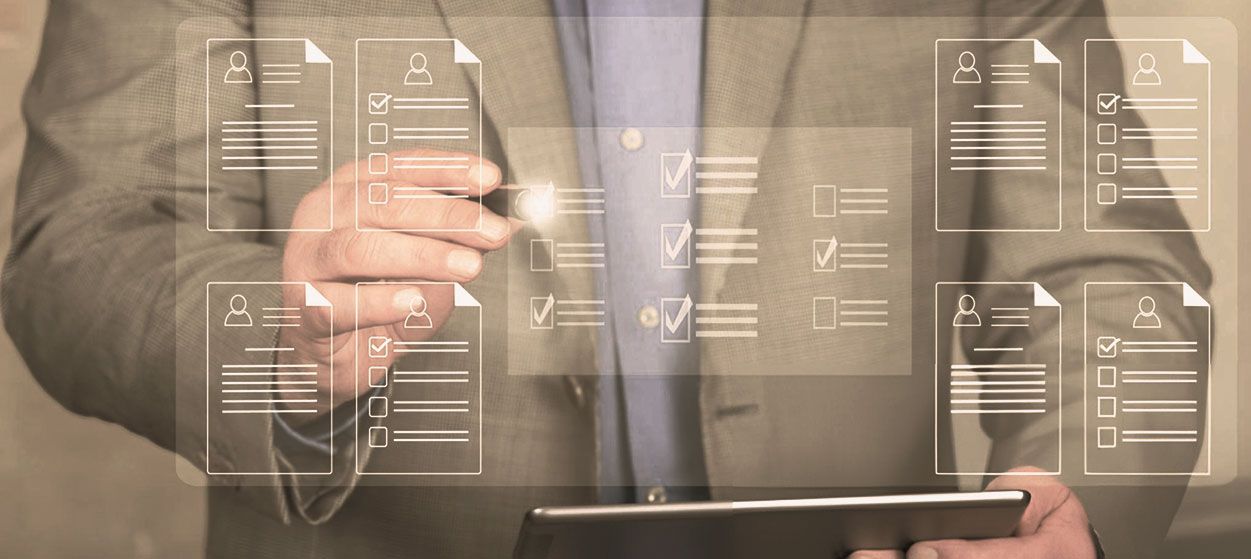
Jul 9, 2024

Hiring the right person comes with a hefty price tag. A SHRM survey reveals an average cost of $4,700 per hire in the US, with experts suggesting it could be significantly higher.
Globally, the situation is just as concerning. A UK survey highlights the talent crunch, with one in every two organizations struggling to attract and retain skilled workers. The demand for these workers far exceeds the supply, leaving traditional HR methods strained and often falling short.
These challenges call for a shift in how HR operates.
The old-school reliance on CVs and rigid job descriptions is fading. Thriving organizations are focusing more on the actual skills needed to do the job and hiring (and reskilling existing employees) in a more focused way to suit their business needs.
This shift opens the door to disruptive solutions. One such solution is Artificial Intelligence. AI as applied to Human Resources offers a game-changing approach to staffing, streamlining processes and uncovering hidden talent.
The AI Possibility in HR
AI continues to reshape the entire HR landscape, and the possibilities are constantly evolving. From analyzing thousands of resumes to unlocking insights during interviews, AI is changing the game. This shift towards a more innovative, faster and fairer recruitment process is exemplified in two primary areas. Far from being just another trend, AI can transform how HR functions.
"Our research says that 50% of the activities that we pay people to do can be automated by adapting currently demonstrated technologies. We think it’ll take decades, but it will happen. So there is a role for business leaders to try to understand how to redeploy talent. It’s important to think about mass redeployment instead of mass unemployment. That’s the right problem to solve.”
Michael Chiu, Partner, McKinsey Global Institute (MGI)
Let’s explore some of the key areas where AI is having a transformative impact in HR:
AI-Powered Resume Screening and Matching
AI can analyze massive numbers of resumes with unparalleled speed, identifying skills and experience that align with specific job requirements. This uncovers hidden gems traditional keyword searches would miss, expanding the talent pool and reducing time-to-hire. For instance, a recent survey found that 54% of firms using AI reported seeing significant cost savings and efficiencies in their hiring process. Additionally, AI streamlines content creation; the average training video production time was reduced by a staggering eight days (62%) using modern AI tools.
Enhancing the Interview Process
Tools that analyze facial expressions, voice tone, and interview transcripts offer insights into candidate emotions and engagement. These answers cover more ground than the cursory questions asked in basic interviews. When it comes to remote interviews which are so common today, AI also ensures authenticity by verifying identity and enhancing security for both HR and candidates.
Learning & Development
AI creates personalized learning paths for employees based on their skill gaps. This gives each person more power and increases participation. AI-powered chatbots offer 24/7 support and knowledge sharing, creating a more accessible learning environment. AI integration in Learning Management Systems (LMS) is rising. This percentage, which is presently 47%, is projected to increase substantially over the next few years.
Performance Management
AI analyzes performance data, spotting hidden bias in reviews. This empowers managers to give more frequent, actionable feedback, leading to fairer evaluations. AI also helps HR identify high-potential employees early, strengthening their talent pipeline.
Predictive Analytics
AI analyzes workforce trends, predicts skill gaps, and uncovers hidden factors driving employee turnover. This eliminates guesswork and provides HR with actionable insights, enabling proactive, strategic decisions that enhance the organization’s health. Take for instance Xerox Corp. They used predictive analytics to combat high attrition in their call center. Debunking the conventional wisdom that focused on experience, AI revealed the surprising truth: personality traits were the key predictor of attrition. This insight led to a revamped hiring process, slashing attrition 20%.
While AI’s applications in HR are far-reaching, let’s delve deeper into two use cases that showcase its transformative power in the recruitment process. The use cases discussed next demonstrate how AI addresses long standing challenges, unlocking efficiency, fairness, and hidden talent pools for organizations.
Revolutionizing Recruitment: AI Use Cases
Use Case 1: AI-Powered Resume Screening and Candidate Matching
The Problem: Traditional Resume Screening is Broken
Recruitment professionals are inundated with credentials in the current competitive labor market. Many of the hundreds of applications that are submitted in response to a typical job posting do not satisfy the bare minimum requirements. In 2018, recruiters scrutinized each resume for an average of 7.4 seconds before determining a candidate’s fate, indicating that the pressure was enormous. Today, things are significantly worse.
This hasty procedure is laden with challenges:
How AI Transforms the Process
AI-powered resume screening isn’t just about automation; it’s about intelligence and uncovering hidden potential. Here’s how it works:
Real-World Examples
Siemens: AI’s ability to analyze candidate profiles, resumes, and online assessments offers the potential to streamline the initial screening process and efficiently match candidates with open positions. Siemens capitalized on this with their AI algorithms, emphasizing how the technology may identify qualified applicants who may not meet traditional search criteria.
Key Benefits
Use Case 2: Enhancing the Interview Process
The Problem: Traditional Interviews Have Limitations
While interviews are an essential part of the hiring process, they can be subjective and prone to biases. Even with structured interview questions, a candidate’s personality, demeanor, and communication style can overshadow their true potential. Additionally, in the age of remote work, video interviews make it harder to gauge a candidate’s authenticity and engagement levels.
How AI Can Help
AI-powered tools bring a new level of objectivity and insight to the interview process. Here’s how:
Real-World Examples
A growing number of companies across sectors are adopting AI-powered interview tools. This includes:
Key Benefits
Some call it magic, you know it is planning
History teaches us that technological change in the workplace often sparks both optimism and apprehension. The early days of HR tech were no different, with fears of job losses offset by the promise of efficiency and strategic focus. Yet, over time, the benefits of technology in HR became undeniable.
Today, AI marks a new chapter in this evolutionary tale. AI offers the tools to make this shift, streamlining processes, uncovering hidden talent, and reducing bias. Companies that embrace this potential will outpace their competitors by attracting top talent. As John Frémont, ex-Chief Strategy Officer, Hypergiant notes,
“What looks like magic to your competitors in five years is just your good planning.”
The future of HR is here, and AI is the catalyst for success.